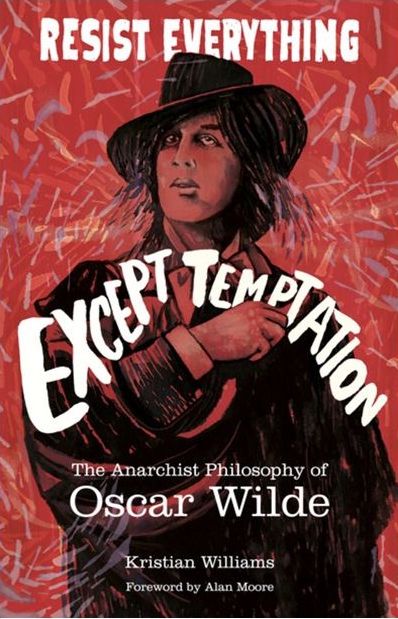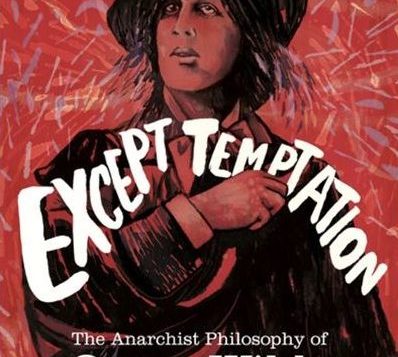 RESIST EVERYTHING EXCEPT TEMPTATION
RESIST EVERYTHING EXCEPT TEMPTATION
The Anarchist Philosophy of Oscar Wilde
by Kristian Williams
AK Press. 283 pages, $18.
RESIST EVERYTHING Except Temptation is a careful consideration of Oscar Wilde’s philosophical underpinnings. Through a close examination of his writings and political affiliations, Kristian Williams discovers a deep affinity for anarchism. To be sure, Wilde is better known for his witticisms and his reputation as a dandy than as a profound thinker. Indeed, the title of this book comes from his famous, frivolous quip: “I can resist everything except temptation.” But Williams makes the case that there are serious anarchist sympathies behind the humorous lines.
One way Williams does this is by defining anarchism in a variety of ways, including a radical individualism and a tolerance for ambiguity, characteristics of Wilde’s work in general. He is interested in the literary and æsthetic qualities of anarchism more than its political dimensions. Wilde’s first play, Vera; or, The Nihilists, is about a group of terrorists modeled after Vera Zasulich, a Russian revolutionary with anarchist sympathies who attempted to assassinate a Russian general in 1878. Williams concedes that “Vera is a bad play in nearly every respect,” mainly for the “political incoherence” of the group to which Vera belongs: “[While] nominally nihilists, they are also called communists, refer to themselves as patriots, talk eagerly of democracy, aim to establish a republic, and appeal to God in their rhetoric.”
However, Williams suggests that this “ambiguity” might have been intentional, as the British press and authorities frequently lumped organizations deemed “radical” together, treating “Fenians, anarchists, and nihilists all of a piece.” By conflating these different radical groups, as well as setting the play in the 1820s and in Russia, Wilde might have expected his audience to think about the struggle for Irish independence going on at that time, seen as an extremist movement and often countered through morally dubious ways, such as “suspending jury trials.”
Wilde’s later “society” plays are even more cleverly subversive, arguing against Victorian morality in favor of “an anarchic code … emphasizing the role of love, acceptance, forgiveness, and individuality.” In Lady Windemere’s Fan, for instance, Lady Windemere, the rigid defender of a strict code of conduct, discovers that the values she upholds might not always prove useful in real-life situations, while Mrs. Erlynne, the “fallen woman,” by taking the blame for Lady Windemere’s actions, suggests that she “might also be the good woman.” Indeed, what is seen as “good” and “bad” in the beginning of Wilde’s plays might be seen differently by their end, an implicit criticism of the “puritanism, and hypocrisy” of his era that uses humor, and that we find funny even today. The anarchist ethic within them is “at once classical, Christian, and queer.”
Williams also shows how Wilde supported anarchist and progressive movements throughout his life. From 1887 to 1889 he was the editor of Woman’s World magazine, which promoted women’s equality and had contributions from “numerous feminists, suffragists, and trade unionists,” as well as anti-racist and anti-imperialist writers, some of whom were well ahead of their times on these issues. In addition, he was friends with those in the anarchist cause, including some who assisted him after his release from prison.
One concern I had is this book’s loose and shifting definition of “anarchism,” which can refer to almost anything subversive or critical of the status quo. At least a nod to the primary meaning of “no government” would have been appreciated. This catchall usage is reminiscent of the term “queer,” which is also used to describe anything that challenges accepted ideas and values. Still, Resist Everything, well organized and with a fluid style, makes a compelling argument for Wilde as a serious thinker who used humor to make audiences think about what they regard as important in life.
____________________________________________________
Charles Green is a writer based in Anapolis, Maryland.






